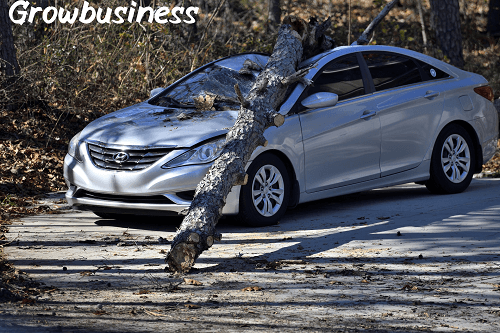Business Insurance For Vfw
Business Insurance for Veterans of Foreign Wars Organizations
Business Insurance, and Veterans of Foreign Wars organizations play a very important role in supporting veterans and advocating for their interests. And generally in maintaining camaraderie among other people who have served in the military. Although the primary mission of the VFW is to provide assistance to veterans. It also performs non-profit services such as organizing activities. Running social clubs, conducting community service, and fundraising. Given the variety of services that the VFW functions to provide, to protect. These organizations from some of the risk factors they present, commercial insurance becomes essential.

This discussion shall describe why VFW organizations are necessarily in need of business insurance, the categories through which this coverage falls, as well as answer questions regarding commonly asked questions.
Why a VFW Needs Business Insurance:
Business Insurance:
Even though VFW organizations are non-profit organizations, they still come under risk as other businesses do. It can be a post at a local level, event, or community activities; in all these aspects, a VFW can meet a wide range of issues that may bring the organization’s. Financial security and reputation into jeopardy. Business insurance helps to avoid these risks and ensures the VFW can continue doing its work without the hassle of unexpected liabilities.
Some of the most common risks VFW organizations face are
- Property Damage: This is where the VFW posts either own or rent a building that might be set on fire, doresdestroyedue to storm or vandalism damage. Insurance will pay the cost to repair or restore the property.
- Liability Risks: Injuries or property damage could occur at community fundraisers, social gatherings, or other programs and lead to lawsuits. Liability insurance can help pay for the cost of attorneys and other claims.
- Employee and Volunteer Liability: The VFW groups frequently use paid staff and volunteers. In case any of these people have an accident, they may make a claim for workers’ compensation or litigation. Complete liability covers all.
- Event Liability: Most VFW clubs have events, like banquets, parades, or ceremonies. Events usually have specific risks such as accidents or cancellations which business insurance can manage.
In return, securing the right insurance policies will protect the finances and assets of VFW organizations while meeting the needs of veterans.
Types of Business Insurance for VFW Organizations:
Business Insurance:
There are other types of business insurance that a VFW organization should consider; here are some of the most relevant policies:
1. General Liability Insurance:
General liability insurance is one of the most important types of coverage any organization offers. It will protect the VFW from claims for bodily injury, property damage, and other related accidents that may occur during events or on the premises. For example, if someone slips and falls during a VFW-sponsored event, general liability insurance may cover medical costs and attorney fees.
2. Property Insurance:
This encompasses the physical property owned by the VFW like buildings, equipment, and furniture from damage by different kinds of incidents such as fires, storms, or even vandalism. In addition to that, the inventories would also encompass supplies or merchandise that are sold at the events.
3. Workers’ Compensation Insurance:

For VFW organizations that have employees or contractors, workers’ compensation insurance is essential. It covers medical costs and lost wages if an employee is injured on the job, ensuring the organization is in compliance with state and federal laws.
4. Event Insurance:
Event insurance is very essential for VFW posts because they hold many events often. It covers the risks of hosting an event like cancellation, no-show vendors, or accidents. The kind of coverage depends on the type of occasion and includes liability, property damage, or lost income resulting from interruptions that may occur because of an event.
5. Directors and Officers (D&O) Insurance:
D&O insurance protects board members and officers of VFW organizations with a board of directors or leadership team from personal liability if they are sued for mismanagement, errors, or omissions in their role.
Frequently Asked Questions (FAQs):
Business Insurance:
1. Do VFW organizations need insurance if they are non-profit entities?
Yes, VFW organizations may be non-profit, but they are always at risk for property damage, lawsuits, and workplace injuries. This insurance can financially protect the organization and its members, ensuring that it can continue to operate as usual no matter what unexpected situations arise.
2. What general liability insurance covers in a VFW
General liability insurance covers the VFW for claims made for injury to people’s bodies, damages to other’s property, and injury to other persons. This policy would take care of costs and damages in the case that a guest at the VFW event becomes injured or that the guest’s property gets damaged.
3. How much does business insurance cost for a VFW?
The cost of business insurance for a VFW is dependent on the size of the organization, the activities that it conducts, the value of its property, and its location. On average, it costs anywhere from a few hundred to a few thousand dollars per year. Consult an insurance agent for a quote that is customized for the needs of your VFW.
4. Are volunteers covered by workers’ compensation insurance?
Most states only cover employees who are paid. However, some states or the actual insurance policies may cover volunteers under specific conditions. It would be wise to consult your insurance company for what is available for volunteers.
5. Does each VFW event need to have event insurance?
While not every event is insured, it is rather essential when dealing with bigger events that may expose a potential threat of accidents or cancellations. Event insurance can guarantee peace of mind and protection for financial losses incurred from the event, like fundraisers, concerts, or public gatherings.
Conclusion:
Business Insurance:

Business insurance is part of what every VFW should be aware of and feel confident in running their business operations. It helps provide the protection you need when things go wrong due to property damage, liability issues, worker injuries, or just general events. The right insurance will ensure that your VFW’s activities focus on essential activities, such as the needs of veterans and their communities, by avoiding the financial impact of something going wrong. Always hire an experienced insurance agent who knows the needs of nonprofits to find the best coverage for your VFW.


